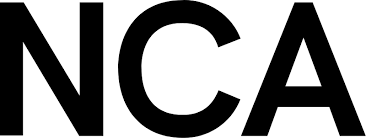The National Committee on Accreditation (NCA) is a non-profit organization that assesses the legal education and professional experience of individuals who obtained their credentials outside of Canada or in a Canadian civil law program. The NCA Exam is a requirement for all NCA applicants who wish to practice law in Canada.
Overview

The NCA Exam is the National Committee on Accreditation (NCA) exam, which is a bar exam for internationally trained lawyers who want to practice law in Canada. The exam is administered by the Federation of Law Societies of Canada (FLSC).
The Exam Format
The NCA Exam is a computer-based exam that is offered multiple times per year. The exam is divided into two parts: the Common Law Part and the Civil Law Part. The Common Law Part is 3 hours long and consists of 100 multiple-choice questions. The Civil Law Part is 2 hours long and consists of 50 multiple-choice questions.
The Exam Content
The NCA Exam covers a wide range of legal topics, including:
- Civil Procedure
- Constitutional Law
- Criminal Law
- Contracts
- Property
- Torts
The specific topics covered in the exam vary depending on the applicant’s law degree. For example, applicants with a civil law degree will be tested on topics that are not covered in the common law curriculum, such as Quebec civil law.
NCA Exam Dates for 2023
Exam Session | Registration Opens | Registration and Accommodations Requests Close | Exam Dates |
|---|---|---|---|
| January | November 21, 2022 | December 15, 2022 | January 23-27, 2023 |
| February | December 5, 2022 | January 5, 2023 | February 20-24, 2023 |
| March | January 16, 2023 | February 9, 2023 | March 20-24, 2023 |
| April | February 13, 2023 | March 12, 2023 | April 19-23, 2023 |
| May | March 6, 2023 | March 30, 2023 | May 17-21, 2023 |
| June | April 17, 2023 | May 11, 2023 | June 14-18, 2023 |
| July | May 15, 2023 | June 8, 2023 | July 12-16, 2023 |
| August | June 12, 2023 | July 6, 2023 | August 19-23, 2023 |
| September | July 17, 2023 | August 10, 2023 | September 19-23, 2023 |
| October | August 21, 2023 | September 14, 2023 | October 21-25, 2023 |
| November | September 5, 2023 | September 28, 2023 | November 16-20, 2023 |
The Exam Preparation
The NCA Exam is a challenging exam, so it is important to prepare thoroughly. There are a number of resources available to help you prepare for the exam, including:
- The NCA Exam Handbook: This handbook provides an overview of the exam format and content.
- The NCA Exam Practice Questions: This book contains practice questions that can help you assess your readiness for the exam.
- The NCA Exam Study Guides: These guides provide in-depth coverage of the exam topics.
NCA Eligibility
Requirement |
Description |
|---|---|
| Qualifying Law Degree | A law degree that is recognized by the Federation of Law Societies of Canada (FLSC). |
| Pre-law education | A minimum of three years of undergraduate study in a program that includes courses in English, mathematics, and social sciences. |
| Legal education | A minimum of three years of full-time legal education in a program that is approved by the FLSC. |
| Professional legal experience | A minimum of five years of post-qualification legal experience in a jurisdiction that is recognized by the FLSC. |
NCA Exam Fee
- Exam fee: $550 CDN plus applicable taxes
- Assessment fee: $500 CDN plus applicable taxes
- Assessment appeal fee: $285.00 plus taxes
- Exam appeal fee: $250.00 per exam, plus taxes
- Cancellation fee: $100 per exam plus taxes
The NCA exam fees are subject to change, so it is always best to check the NCA website for the most up-to-date information.
The NCA exam is a multiple-choice exam that is administered by Pearson VUE. The exam is 6 hours long and consists of 200 multiple-choice questions. The passing score for the exam is 70%.
FAQ?
The National Committee on Accreditation(NCA) conducts an examination every year to examine if the candidate is thorough to understand the law syllabus according to Canadian law
The NCA evaluates the qualifications of anyone with a law degree, whether you are: a Canadian citizen who got your legal education abroad.
The candidate be it male or female needs to be unmarried at the time of the exam and the training thereafter. The following requirements must be met by a candidate: He or She must be a citizen of India; He or She must be a subject of Nepal; or
 60 minutes of Duration
60 minutes of Duration 100 Questions
100 Questions Instant Report
Instant Report 4 Dimensions
4 Dimensions 500+ Career Options
500+ Career Options 1M+ Test Taken
1M+ Test Taken




